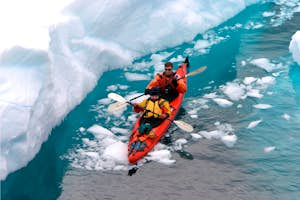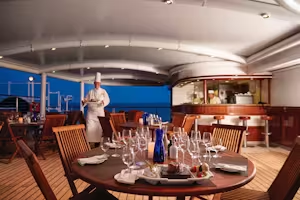Fitness
Zodiacs
While being fit isn’t a prerequisite to travelling to Antarctica as it's a ‘soft adventure’, being fit enough to get the most out of the daily excursions will increase your overall enjoyment of the trip.
Being able to get on and off the rubber zodiac boats is crucial. A crew member will always help you get into and out of the zodiac, with a 'sailor’s grip' on your arm to provide stability. You must ensure that you have your hands free, so stow all cameras and walking poles. You can take them out against once you are securely seated. You will need to be flexible enough to take a deep step into the zodiac and for wet beach landings, you will need to swing your leg over the side of the zodiac and step down into the water. This becomes second nature after a few landings!
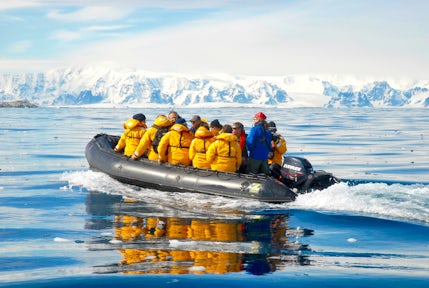
Landings
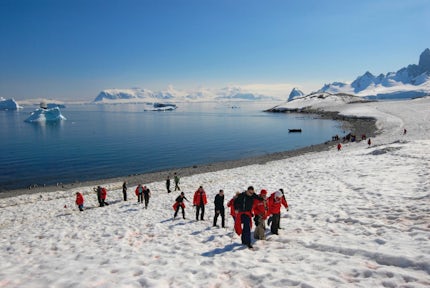
Hiking in Antarctica
Once onshore, walking distances tend to be quite short as Antarctica’s physical topography precludes longer walks. Most landings typically require walking for less than half a mile, although the ground is typically uneven and can be challenging when icy, so a walking pole(s) can be very useful. You may be walking on snow or rocks. Watch out for compacted spots that can be slippery, and in deep snow do try to follow the tracks made by the guides (this helps avoid creating lots of deep boot holes that penguins can fall into).
During landings where there is the option to walk a little further, perhaps up to a ridge point for a panoramic view over an iceberg graveyard, you can choose the degree of difficulty. If you wish you can simply remain on the shore, contemplating the penguins going in and out of the water. Even if you don’t have mobility issues, we strongly recommend taking some time at the shoreline as this makes for fantastic photographic opportunities!
Staying healthy
Vaccinations

You will be passing through either Chile or Argentina en route to Antarctica. There are no compulsory vaccinations for Chile or Argentina at the current time, but requirements are subject to change, so it is best to check with your local doctor. For more information check the Centers for Disease Control and Prevention website.
Make sure your immunisation is up to date for:
- Tetanus
- Hepatitis A
- Diphtheria - re-vaccination recommended every 10 years
- Hepatitis B - higher risk for long stays and frequent travel
- Typhoid - for travellers who may eat or drink outside major restaurants and hotels
- Rabies - the risk of being bitten or scratched by a rabid animal is rare. However, it is recommended that you are vaccinated against rabies if you will be staying for an extended period, will be in close contact with animals, or will be cycling. If you do get bitten or scratched by any animal during your time in Chile or Argentina, it's best to seek medical advice as soon as possible.
- Yellow fever - vaccination recommended for all travellers to Iguazú Falls who are 9 months old or over. You will need to be vaccinated at least 10 days before you travel to allow enough time for the vaccine to work.
You can find out more with our guides on Getting to Antarctica via Chile and Getting to Antarctica via Argentina.
What our customers think of Preparing for Antarctica
Crossing the Drake Passage
If you’re worried about seasickness when crossing the Drake Passage, it might be a good idea to plan ahead and by researching the tablets, wristbands and patches, and consider talking to your doctor. If seasickness suddenly hits whilst on board, your ship’s doctor will be able to prescribe medication. Please note that this may be at an extra cost.
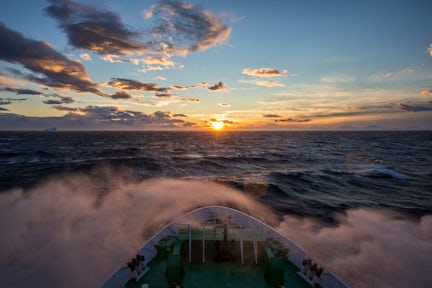
Sunset over the Drake Passage



